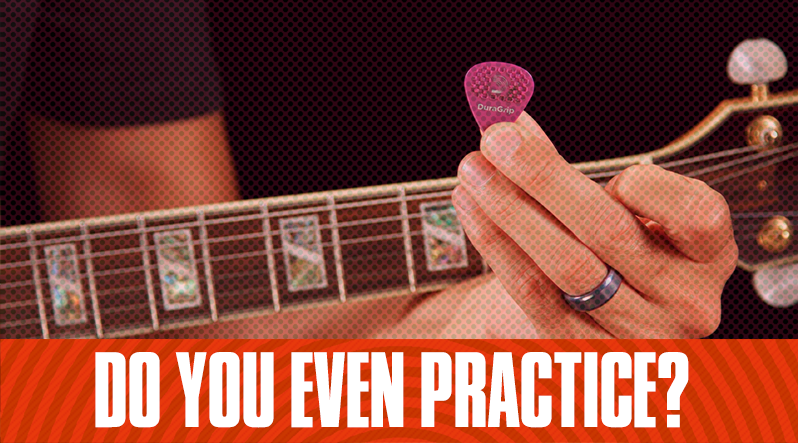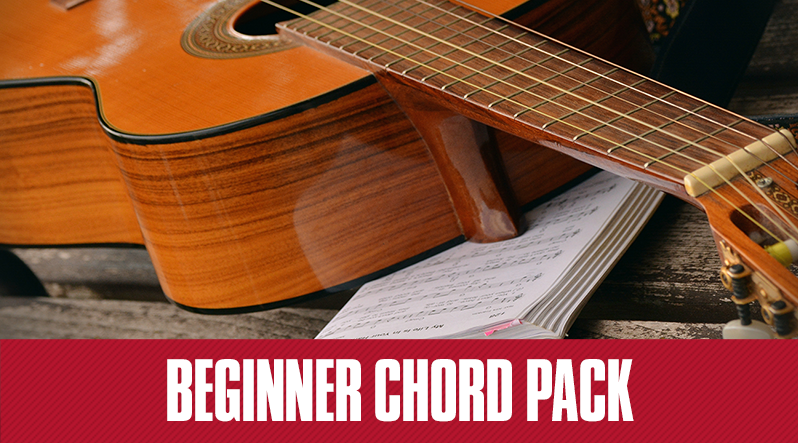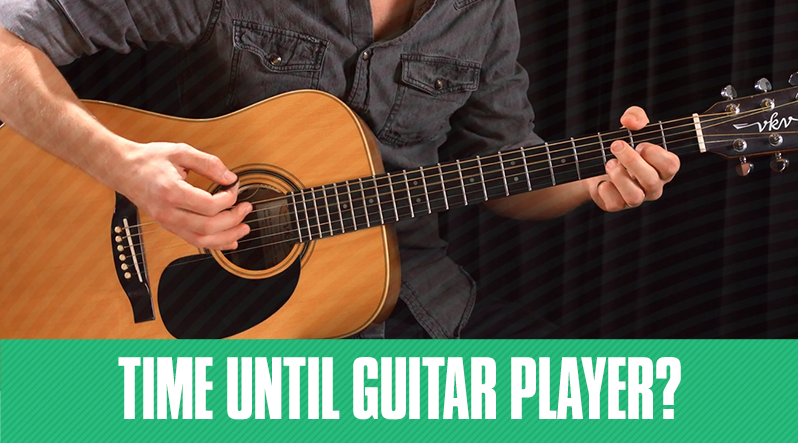
One of the most common questions we get is this: “How long does it take to learn guitar?” or “How long does it take to get good at guitar?”
This is a tough question to answer because everyone who plays guitar has different goals. Some may want to learn how to play a song, or learn how to play a specific chord progression, or play blistering solos. Getting good at anything, whether it’s playing guitar, learning a new language or anything else, requires a ton of practice.
Regardless of what your guitar goals are, it’s going to take at least a few months or maybe over a year of consistent practicing before you can confidently say you “know how to play guitar.”
For those that just want to learn how to play a few chords and switch between them smoothly, it’s going to take at least 3 or 4 months of solid practice, maybe more depending on how much you’re able to practice.
Practice, Practice, Practice!
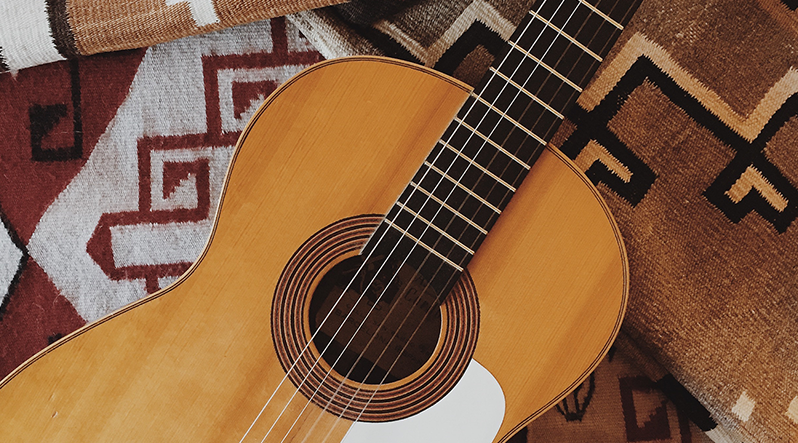
How long should you practice? This is a fairly common question. Everyone is busy and has a life outside of playing guitar, so it may be difficult to carve out time for yourself. Don’t practice more than an hour in a single day. An hour is already quite a bit of time, and if you’re practicing for more than this, your hand may already be a little tired, especially if you’re new to guitar. Stick to a solid 30 to 45 minutes of focused practice each day. And you don’t have to feel guilty if you have to skip a practice day. Things happen and just know that the next time you do practice, make sure you’re locked in and focused.
Some new guitar players are overly ambitious and dedicate too much time to practice. This will eventually lead to them getting burnt out or hitting a plateau, or injuring their hand. You don’t want to do this.
Set Small, Achievable Goals
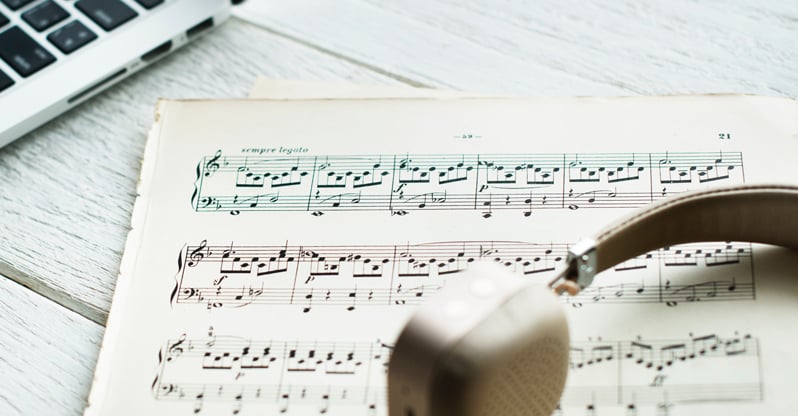
Learning something new is all about milestones. Set your goals correctly with what you can realistically achieve in the time you have. Think of something you want to do on guitar, and give yourself a deadline for when you’ve mastered that technique or achieved that goal.
For example, maybe you want to learn an entire song in a week. Well, if it turns out that the song is a bit too complicated, how about you learn only the intro part of the song in a week? If that is still too difficult to achieve, how about you scale it back even further and simply practice playing the chord progression? Or if you don’t know a chord in the song, how about you just focus on playing this new chord that week instead?
It can be overwhelming if you jump right into an entire song lesson and you find yourself confused by the scale or chords being used. You want to always break things down so that they’re just a bit easier to think about. When you do this, the goals are easier to reach, and it generally feels a lot better knowing you’re making progress quickly with small goals versus waiting a long time to finish something completely, which can be demoralizing and hurt your motivation.
A Word on Gear
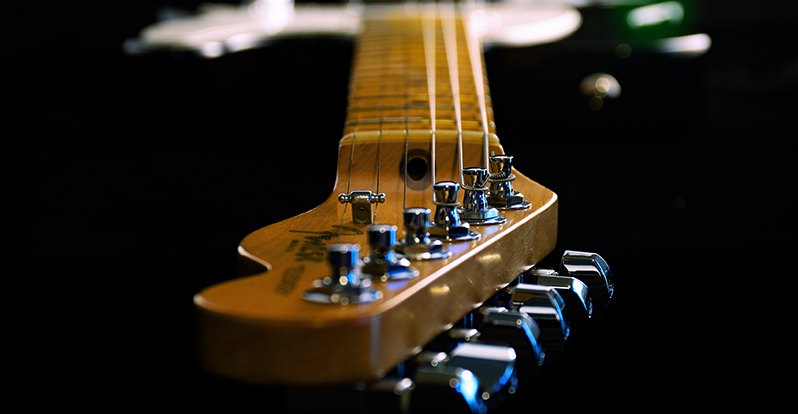
Some new guitar players are hung up on gear. It is not the guitar that plays guitar, it’s the player that plays guitar!
We all like our shiny, nitro-finished babies with their Indian rosewoods and custom shop pickups, but at the end of the day, none of this matters if you can’t play a lick! Which brings us to the first point of this blog post: practice.
The only way to become a guitar player is to practice. Depending on what you want to do, it’s going to take at the least a handful of months, maybe more, before you’re confident enough in yourself to say that you are in fact, a guitar player.
